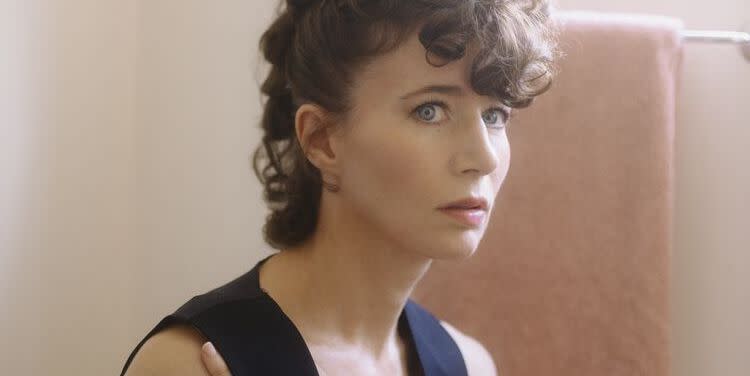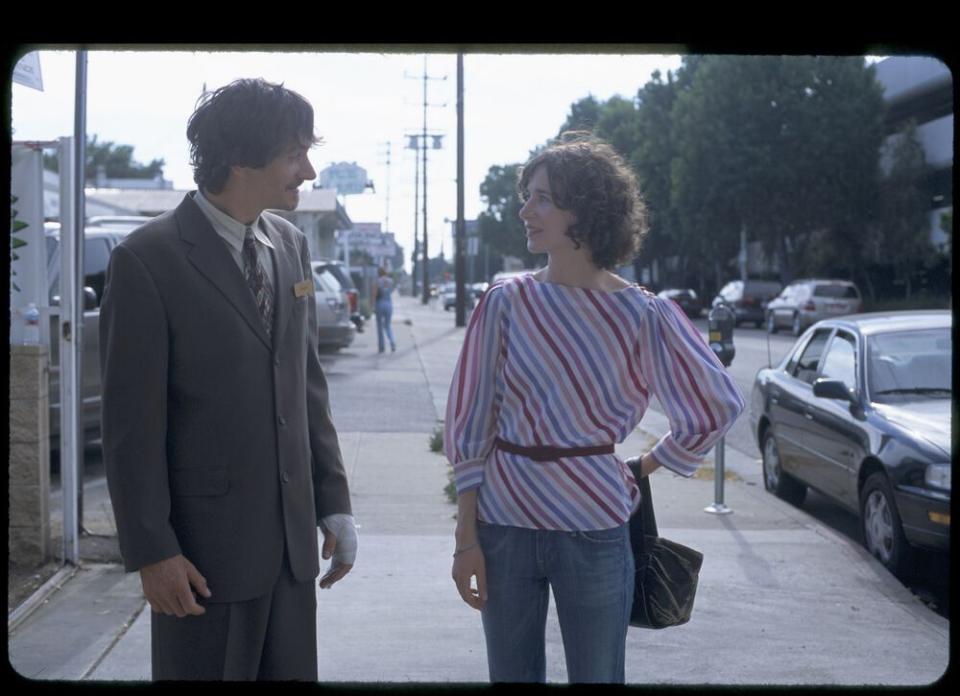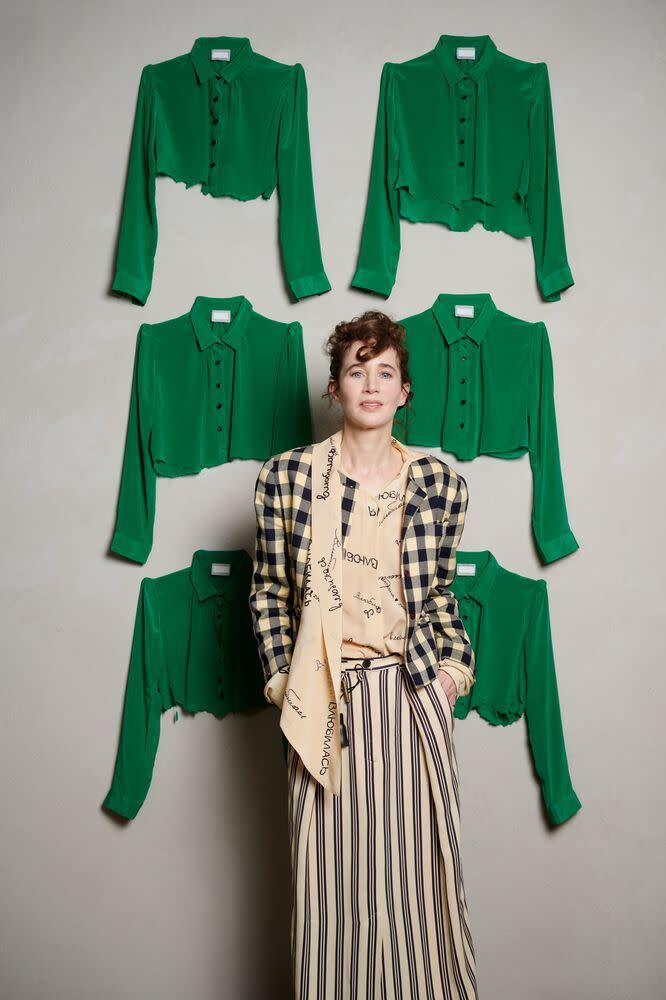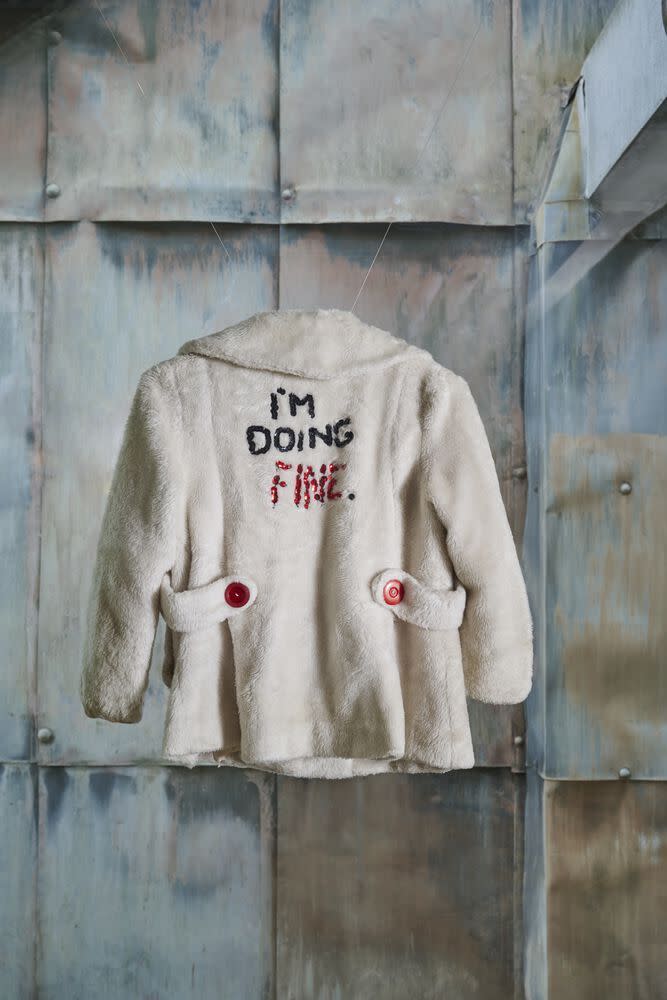In Conversation With: Miranda July

I’m only on the second page of Miranda July’s latest novel, All Fours, when I start highlighting: ‘...that funny little abandoned feeling one gets a million times a day in a domestic setting’, she writes. Like a fan-girl, I read it aloud to her when we meet over Zoom, July speaking from the book-lined office in her new LA home. ‘It’s funny, you’re not the first person to read that line to me,’ she says, laughing. ‘That’s one of those things I wrote being like, I guess I’ll just write that as if everyone knows what I mean, when, in fact, I’m pretty sure I’m the only one’.
July is far from being the only one. The multi-hyphenate creative has the extraordinary ability to distil near-universal female experiences into a single sentence, invariably underpinned with her trademark fearless vulnerability and searing wit. Unsurprisingly, she has a devoted following. Her artistic output is remarkably diverse: she’s written bestselling short-story collections, directed and starred in a Cannes-award-winning feature and numerous other films, and her first solo art exhibition, ‘Miranda July: New Society’, is currently showing at Milan’s Osservatorio.
If that wasn’t enough, at 50, she has now written the definitive, albeit fictional, guide to the burn-it-all-down, radicalising and yet incomprehensibly ignored chapter of a woman’s life that is the menopause. The book, her second novel, follows the journey of an unnamed forty-something semi-famous artist in a coming-of-middle-age story. Sound familiar?
FIND OUT MORE ON ELLE COLLECTIVE
‘My best friend can read it and be like, wow, it’s so weird how none of this happened and yet it’s all the truth. Some people will just be like, oh, well, it’s her. I have this problem worse than any other writer because of the career that I’ve made, and maybe that’s a tool to be used. I know it’s fiction, but the fact that a lot of my audience has grown up alongside me, that’s a useful thing to loan to the character.’

She wrote the novel over five years, as ‘a companion to this important stretch of life that is super-mapless. There is the narrowest, most shadowy understanding of what my future – physically, sexually and intimately – as a mother, artist and woman, might look like. So I was like, oh! This is wide open, in ways that are depressing and exciting, because anything you discover that’s not what you were told is electric. It’s hiding in plain sight. Do all older women know the psychedelic state of this transformation period? Is that a given?’
She is aghast at the paucity of medical support, or information, that women are offered. ‘Almost every week a friend texts me and says: 'OK, so tell me everything. When I brought this up with my doctor, she said it would be fine and I didn’t need to do anything unless I was suicidal.' The whole medical system is built around men’s bodies, which aren’t as complex. It’s not scientific; it’s terrifying.’
Culturally, it’s similarly uncharted territory. ‘We need varied and different accounts. [We need] operas and movies. If this was something that happened in men’s bodies, we’d have it from the Greeks. It would be seen as a man coming into his power… it would be the bedrock of our society.’

July describes writing the book not as a creative challenge, but as a calling. ‘I’ve never made anything like this before. I did it to save my life, and to change my life, and it did.’ And not just her own; she wrote it as a manifesto. ‘I’d sit next to a woman at a party and it’s like you’re spies exchanging information. And each time something like that happened, I would go back to my computer and be like: I’m writing for her now. I had this very challenging but very ecstatic feeling through the whole time that all the women of the world were with me. I wasn’t alone; this was for them.’
After finishing the book, July feels settled. She recently separated from the film-maker Mike Mills, whom she married in 2009, and moved into her own rental a few blocks away while they happily co-parent their 12-year-old son Hopper. She’s just finished renovating, and proudly gives me a tour. ‘I’m making everything how I want it. One reason that it makes me so happy is my child gets to see who I really am,’ she tells me.
‘It’s a weird thing that the process to getting here is like you failed at something. That’s not how Mike and I approached it. It was long, slow and kind of powerful. I really do feel hopeful that these relationship institutions could begin to evolve so that you could be a young woman and aspire to have long and short relationships, and a child, and have times when you live alone… but it’s not just one “till death do us part”, which is sort of completely insane.’

It shouldn’t be the case, but a woman writing about the sometimes blisteringly explicit experience of ageing still feels courageous. ‘It felt very risky. I felt like I was outing myself,’ she agrees. ‘Even just the basic level of: I look pretty youthful, I could probably get by for a bunch more years with people being vague about how old I was. But what reward am I forfeiting? This is what’s happening in my body. All I could come up with was that maybe if I age gracefully, that is quietly, and just keep trying to look nice then I will be ignored less meanly than if I talk about it. I think I’ll take my chances. This conversation with other women is actually what’s going to sustain me in the second half of my life. That is a reward worth risking for.’
ELLE Collective is a new community of fashion, beauty and culture lovers. For access to exclusive content, events, inspiring advice from our Editors and industry experts, as well the opportunity to meet designers, thought-leaders and stylists, become a member today HERE.
You Might Also Like


